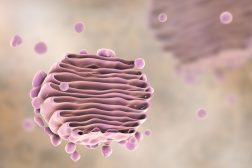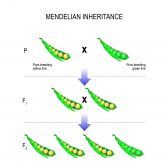Definition
noun, plural: residues
(1) (biochemistry) Any of the monomers comprising a polymer, or any of the parts that integrate to make up a larger molecule
(2) (general) That remains after a substantial portion of something is removed, e.g. substance on the filter paper that remains following filtration
Supplement
In biochemistry or molecular biology, a residue refers to a single unit that makes up a polymer, such as an amino acid in a polypeptide or protein. Example of usage: a polypeptide consisting of 5 amino acid residues.
Word origin: Latin residuum (what is left over)
Synonym(s):
- residuum
Related term(s):







